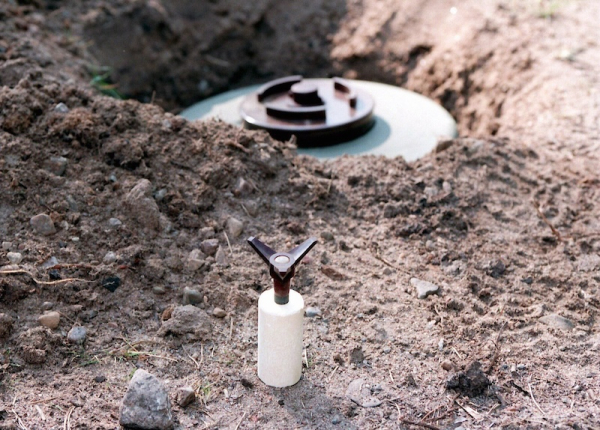
Finland will begin the process of withdrawing from the Ottawa Treaty banning anti-personnel landmines. LEHTIKUVA
- Previous Article Foreign residents set to vote in record numbers in local elections
- Next Article Ticks return early in southern Finland as spring temperatures rise
Finland will begin the process of withdrawing from the Ottawa Treaty banning anti-personnel landmines and significantly increase defence spending over the next four years.
Prime Minister Petteri Orpo announced the decision at a government press conference on Tuesday. The move would reverse Finland’s 2012 accession to the international treaty and allow the return of landmines to national defence planning.
A formal bill to terminate the treaty will be drafted by the foreign ministry and is expected to reach Parliament before the summer recess. If approved, the withdrawal would take effect six months after the United Nations receives Finland’s notice.
Foreign Minister Elina Valtonen said the government aims to finalise its legislative proposal by early summer. If passed, the exit would be registered with the UN Secretary-General, the treaty’s depositary.
Landmine use is currently banned by 165 states under the Ottawa Treaty. The government said the decision was based on military advice and intended to adapt Finland’s defence to changing security conditions in Europe following Russia’s invasion of Ukraine.
The return to landmine use has also been adopted by Poland and the Baltic states, which announced similar decisions in March.
Defence Minister Antti Häkkänen said landmines are a cost-effective and terrain-appropriate means of national defence, particularly for Finland’s conscript-based army. He said their use would be limited to wartime and guided by digital mapping systems, with clearance procedures guaranteed after any conflict.
The reintroduction would be included in an extended reform of the Finnish Army. The 10-year programme involves upgrading armoured vehicles, artillery systems, air defence, and personal equipment. Häkkänen said the army overhaul will cost between €10 billion and €15 billion.
In parallel, the government will increase overall defence spending to three percent of gross domestic product by 2029. This represents a €3 billion increase in funding for the defence administration.
Finance Minister Riikka Purra said most of the new funds will go to ground forces. Naval capabilities and the Border Guard will also receive additional investment.
Purra stated that while the full cost impact will appear in future budgets, the aim is to avoid new state debt. She noted the budget can accommodate much of the increase through existing flexible spending authorisations and unused allocations.
The government also committed to boosting funding for the Security Intelligence Service, the rapid response police unit, and the Border Guard. Further investment is planned for civil defence, including shelter renovations.
The changes are framed as part of Finland’s long-term commitment to national defence and NATO responsibility-sharing. Orpo said the new policy supports Finland’s security and sends a signal to other alliance members ahead of NATO’s next budget discussions.
“Russia poses a long-term security threat to Finland and Europe,” Orpo said. “These measures ensure Finland remains secure for years to come.”
According to a recent Yle survey, 91 of 117 responding MPs support withdrawal from the Ottawa Treaty. The majority of backing comes from government parties.
Public debate over landmines has intensified since the war in Ukraine. Both Russia and Ukraine have used mines in combat, though Ukraine remains a party to the Ottawa Treaty and claims its compliance has been hindered by the conflict.
The government said the treaty withdrawal and spending increases reflect Finland’s new security reality and NATO membership. Orpo emphasised that despite the changes, Finland remains safe and stable.
HT
- Previous Article Foreign residents set to vote in record numbers in local elections
- Next Article Ticks return early in southern Finland as spring temperatures rise
Source: www.helsinkitimes.fi
